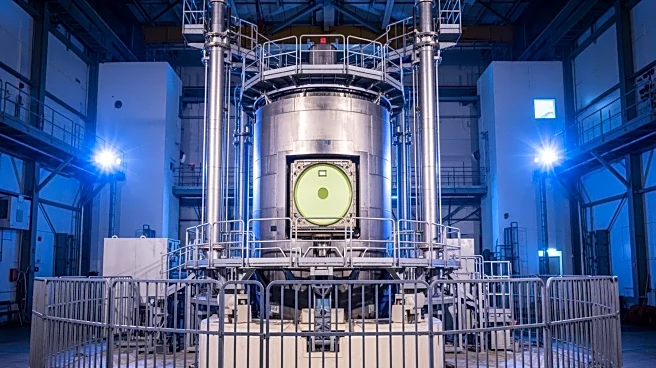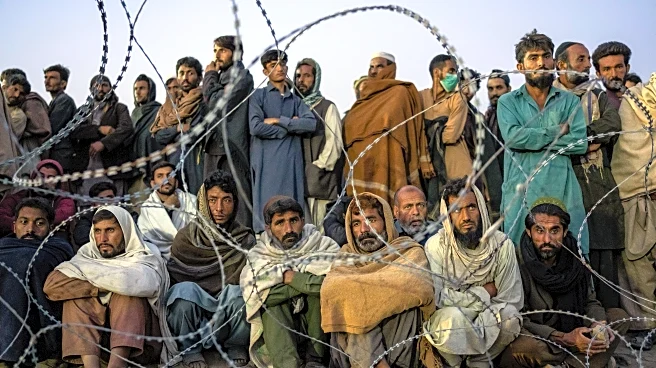What's Happening?
Iranian President Masoud Pezeshkian has declared that recent U.S. attacks on Iran's nuclear facilities will not impede the country's progress. During a visit to the Atomic Energy Organization of Iran,
Pezeshkian emphasized that the destruction of these facilities would not delay Iran's nuclear program, which he insists is solely for civilian purposes. He reiterated that the atomic bomb is considered forbidden by Iran. This statement comes in the wake of what has been termed the '12-Day War,' involving coordinated strikes by Israel and the U.S. on Iranian military capabilities. Despite these setbacks, Iran is reportedly restoring its missile production capabilities, with significant imports of sodium perchlorate from China, a key component in solid rocket fuel. Israeli defense officials are closely monitoring these developments, as Iran's missile arsenal is believed to be rapidly rebuilding.
Why It's Important?
The developments in Iran's nuclear and missile programs have significant implications for regional and global security. The restoration of Iran's military capabilities, particularly its missile production, poses a potential threat to neighboring countries and could destabilize the Middle East. The involvement of China in supplying key materials to Iran highlights the geopolitical complexities and the shifting alliances in the region. For the U.S. and its allies, Iran's actions may necessitate a reassessment of diplomatic and military strategies to curb Tehran's nuclear ambitions. The situation also underscores the challenges in enforcing international sanctions and the potential for renewed tensions between Iran and Western powers.
What's Next?
Further actions from Israel and the U.S. may be anticipated as they continue to monitor Iran's military activities. Israeli officials have hinted at possible future operations to prevent Iran from advancing its nuclear capabilities. Meanwhile, diplomatic efforts may resume to negotiate limitations on Iran's nuclear program, although the success of such negotiations remains uncertain. The international community will likely keep a close watch on Iran's activities, particularly any signs of uranium enrichment or nuclear weapon development.
Beyond the Headlines
The situation raises ethical and legal questions about the use of military force to prevent nuclear proliferation. It also highlights the ongoing struggle between national sovereignty and international security concerns. The potential for a nuclear-armed Iran could lead to a regional arms race, prompting other countries to seek similar capabilities. This development could have long-term implications for global non-proliferation efforts and the stability of international relations.










